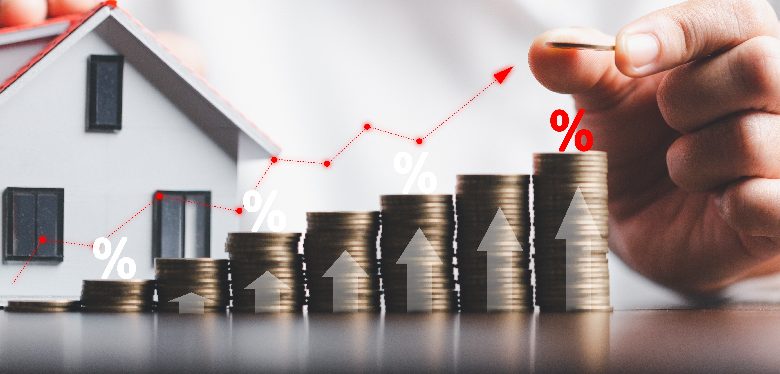Beyond Price: Understanding the Real Meaning of Property Valuation

When most people hear “property valuation,” they immediately think of one thing: price. How much is my home worth? What can I sell it for? What will the bank lend me?
But a truly insightful property valuation—an évaluation valeur—goes far deeper than just a number. It captures a multidimensional portrait of your property’s standing, risk profile, potential, and financial role.
If you plan to seek an évaluation valeur for your home or investment property, understanding the layers behind that value is essential to making smarter decisions.
Let’s break it down carefully.
What Is a True Property Valuation?
At its most basic, a property valuation estimates the monetary worth of a real estate asset at a given point in time.
But real-world valuations include three crucial dimensions:
- Market Value: How much buyers are willing to pay today.
- Replacement Value: What it would cost to rebuild the property from scratch.
- Income Value: For rental properties, the expected return on investment.
A proper évaluation valeur reflects not just what your property is worth in the current moment — but how it fits into broader financial, emotional, and investment landscapes.
Why Property Valuation Is More Than “Price”
Focusing only on the headline number ignores critical subtleties that can make or break your real estate decisions.
Key Strategic Roles of Valuation:
- Wealth Management: Understanding net worth and asset diversification.
- Tax Planning: Municipal taxes, capital gains taxes, and estate planning require accurate valuations.
- Insurance Coverage: Ensuring proper rebuilding cost coverage—not just market value.
- Refinancing Decisions: Leveraging home equity effectively.
- Investment Analysis: Buying, selling, or renting with profit in mind.
In short: The “price” is only one slice of a much bigger financial picture.
How Évaluation Valeur Is Calculated: Core Approaches
Different methods yield different insights. Here’s what professional valuers consider:
- Comparative Market Analysis (CMA)
Looks at recent sales of similar properties (“comps”) to establish a baseline price.
- Pros: Fast, reflective of real market behavior.
- Cons: Sensitive to temporary market swings; may ignore property uniqueness.
- Cost Approach
Estimates how much it would cost to rebuild the property today, minus depreciation.
- Pros: Useful for insurance and new construction.
- Cons: May understate true market value in desirable neighborhoods.
- Income Approach
Used mainly for rental or commercial properties; based on projected rental income and expected returns.
- Pros: Reflects real investment performance.
- Cons: Less relevant for residential, owner-occupied homes.
Pro Tip: A thorough évaluation valeur often combines multiple approaches for a complete picture.
The Hidden Variables That Shape Your Property’s Value
Understanding valuation means recognising not just surface features (bedrooms, lot size) but deeper, often invisible, influences:
- Micro-Market Trends
- Two streets apart can have wildly different demand patterns.
- Psychological Triggers
- Natural light, ceiling height, backyard space, and curb appeal influence buyer emotions—and thus, perceived value.
- Macro-Economic Forces
- Interest rates, inflation, regional employment rates impact property values more than most homeowners realise.
- Zoning and Future Land Use
- Land that could legally support densification or commercial use can command premiums.
Valuation professionals weigh these often hidden factors to reach a more nuanced estimate.
How Inaccurate Valuations Hurt Homeowners
An inaccurate or misunderstood valuation can cause major financial pain.
Potential Risks:
- Overpricing a Sale: Leading to months on the market and eventual price cuts.
- Underinsuring a Property: Facing rebuild costs that insurance won’t cover.
- Overleveraging in Refinancing: Borrowing based on inflated equity and risking negative equity if the market cools.
- Mismanaging Investments: Buying or holding properties that underperform relative to true value.
Knowledge isn’t just power in real estate — it’s protection.
How to Prepare for an Accurate Valuation
Whether seeking an online estimate or hiring a professional, preparation improves accuracy.
Key Preparation Tips:
- Document Upgrades: List all major renovations, repairs, or improvements.
- Correct Errors: Ensure your home’s official records (size, rooms, features) are accurate.
- Stage Thoughtfully: First impressions matter—even for professional appraisers.
- Research Local Sales: Understand what similar homes recently sold for in your immediate area.
Pro Tip: Even subtle improvements, like landscaping or fresh paint, can positively sway a valuer’s perception.
When Should You Re-Evaluate Your Property?
Because markets shift and properties evolve, valuations need updating periodically.
Best Times to Re-Assess:
- After Major Renovations or Extensions
- Every 1–2 Years in fast-changing markets
- Before Listing for Sale
- Before Applying for Home Equity Loans or Refinancing
- When Updating Insurance Policies
Staying updated ensures you’re always making decisions based on today’s reality—not yesterday’s assumptions.
Tech and the Future of Property Valuation
Today’s évaluation valeur is undergoing its own revolution through digital innovation.
Emerging Trends:
- Instant Online Valuations: Powered by AI and big data.
- Drone Inspections: Offering rapid exterior assessments.
- Blockchain Secured Title Data: Enhancing valuation accuracy and transparency.
- Predictive Analytics: Forecasting future property values based on socio-economic indicators.
While tech offers speed and accessibility, human expertise remains critical for high-stakes decisions.
Final Thought: Master the Layers Behind the Value
A smart homeowner—or investor—never sees valuation as “just a number.” They see it as a multi-dimensional story about financial health, market position, risk management, and future opportunity.
Whether you’re planning to sell, refinance, renovate, or simply stay informed, understanding the deeper meaning behind évaluation valeur empowers you to move confidently through an ever-changing real estate world. Don’t just chase a price. Master the full story of your property’s worth.




